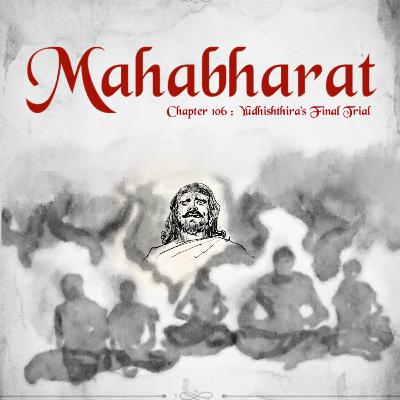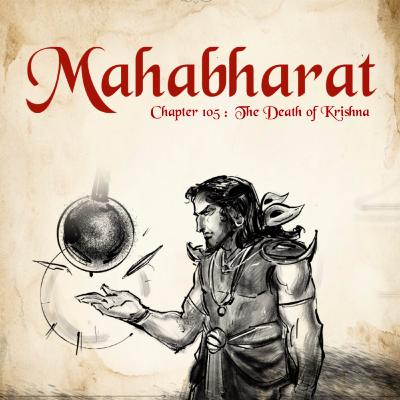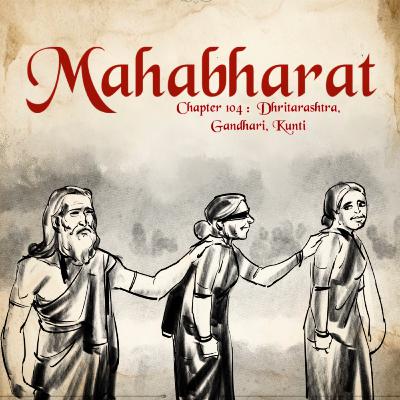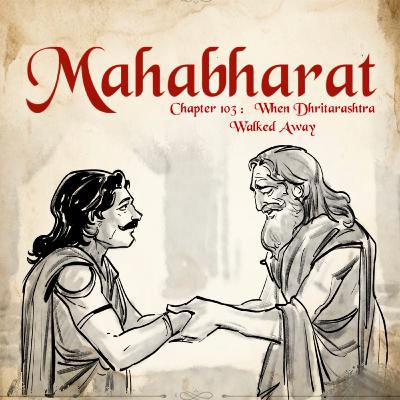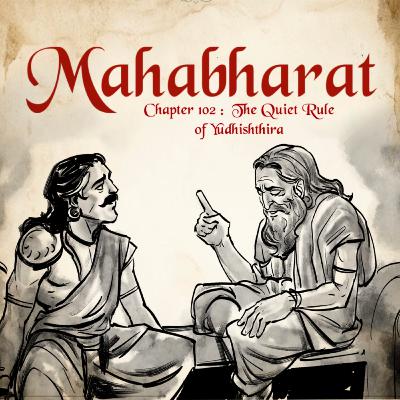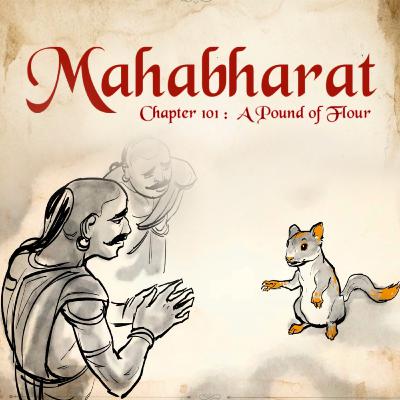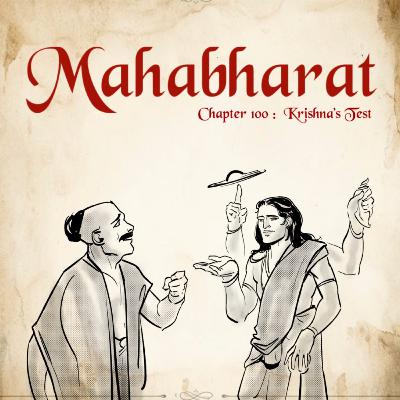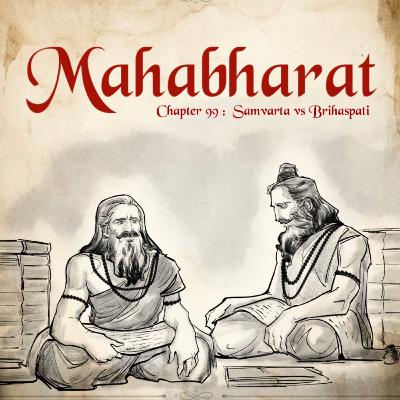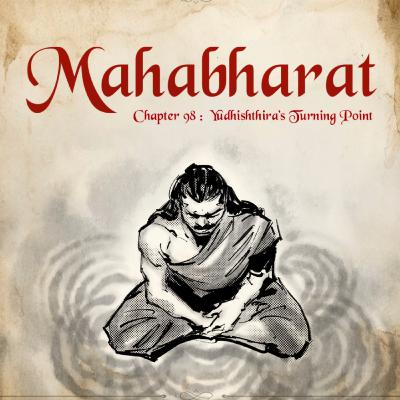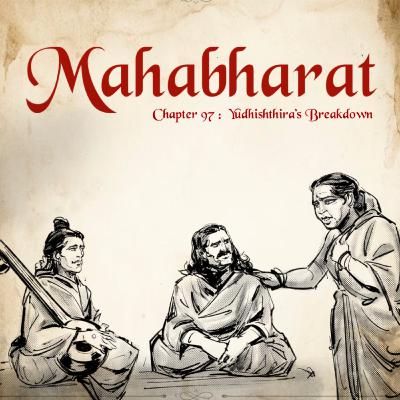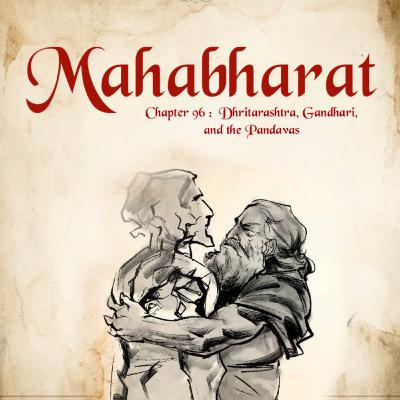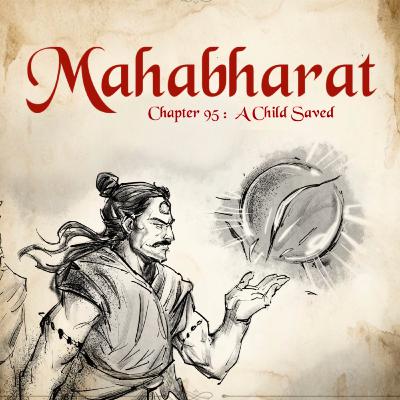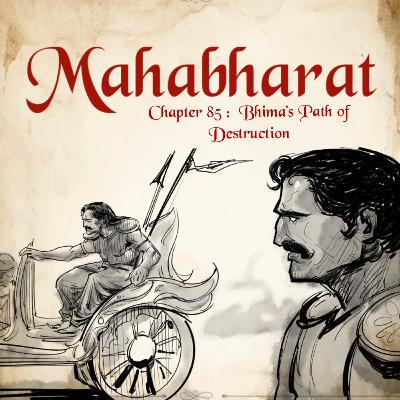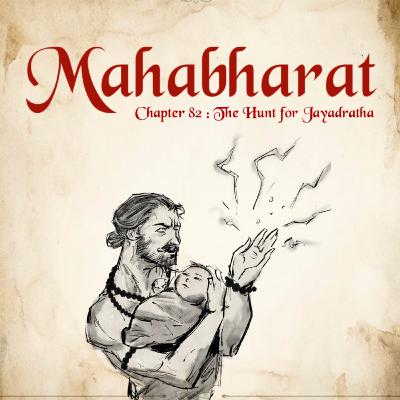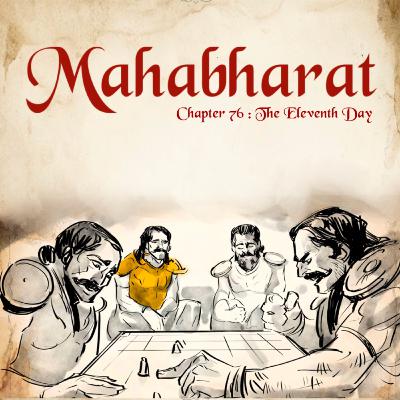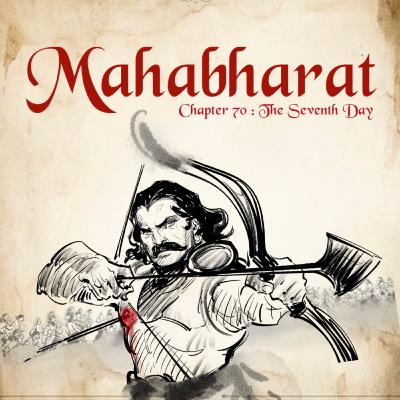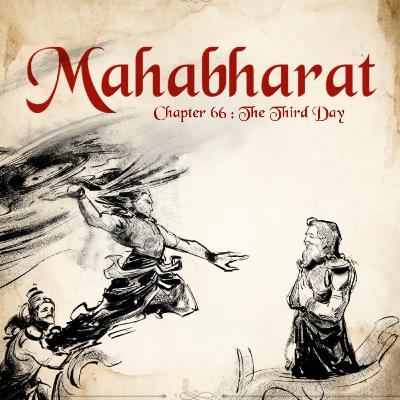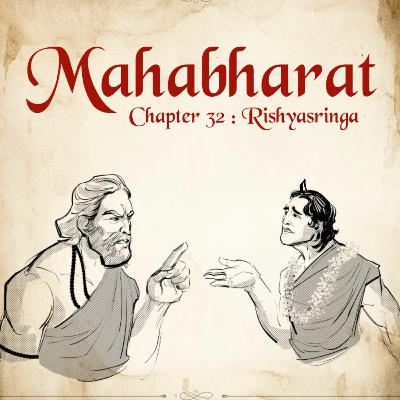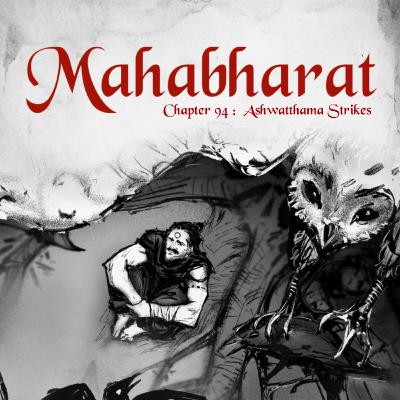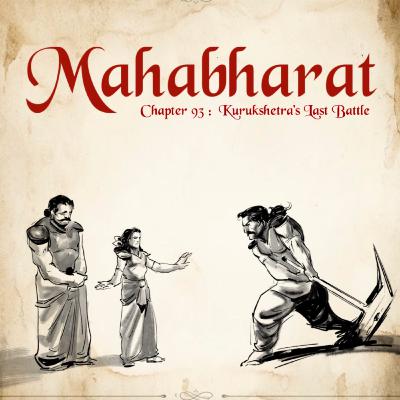Discover Mahabharat by Kumar Varun
Mahabharat by Kumar Varun

Mahabharat by Kumar Varun
Author: Kumar Varun
Subscribed: 9Played: 124Subscribe
Share
© Kumar Varun
Description
This series is a simplified retelling of the epic Indian scripture, “Mahabharata”. It is important to note that this version does not encompass the full depth, complexity, and nuances of the original text, which spans multiple volumes and contains numerous intricate storylines.
The purpose of this simplified retelling is to make it easy for interested viewers to grasp the fundamental narrative and lessons that are inherent to this ancient tale.
While sincere efforts have been made to remain faithful to the essence of the original epic, certain details, subplots, and cultural reference
The purpose of this simplified retelling is to make it easy for interested viewers to grasp the fundamental narrative and lessons that are inherent to this ancient tale.
While sincere efforts have been made to remain faithful to the essence of the original epic, certain details, subplots, and cultural reference
106 Episodes
Reverse
Narrated by Kumar VarunThe final episode of our Mahabharata series. Yudhishthira renounces the world and walks north with his brothers and Draupadi. One by one, they fall. A dog follows. What happens next is the most moving and profound chapter of the Mahabharata : a tale of loyalty, illusion, and ultimate truth.Sources, Bibliography and Suggested further readings:The Mahabharata – translated by C. RajagopalachariThe Mahabharata of Vyasa – Kisari Mohan Ganguli (public domain)
Narrated by Kumar VarunAfter 36 years of peace, Dwaraka descends into chaos. A drunken brawl among the Yadavas fulfills a deadly curse. Krishna watches as his clan destroys itself. Balarama retreats into the ocean. And on a quiet forest floor, a hunter’s arrow ends the mortal life of Vasudeva.Sources, Bibliography and Suggested further readings:Mahabharata – Mausala Parva (Book 16), especially the C. Rajagopalachari abridged version (Bharatiya Vidya Bhavan, 1951)Mahabharata – Critical Edition, Bhandarkar Oriental Research Institute (Pune)K.M. Ganguli translation of the Mahabharata (1883–1896), public domainBhagavata Purana – Skanda 11, Chapters 30–31 (describes the destruction of the Yadavas and Krishna’s departure)Bibek Debroy, The Mahabharata (Penguin India, 2010–2014), Volume 10 (for critical edition-based English translation)P. Lal, The Mahabharata of Vyasa (Writers Workshop, Kolkata) – poetic retelling for reference tone
Narrated by Kumar VarunKunti, Gandhari, and Dhritarashtra walk away from the palace, from power, from family , and into the forest. This is the story of their final journey, their last goodbye, and how they embraced the fire that ended it all.Sources, Bibliography and Suggested further readings:Vyasa Mahabharata (Ashramavasika Parva)C. Rajagopalachari’s MahabharataCritical Edition by Bhandarkar Oriental Research Institute (BORI), with focus on the Ashramavasika ParvaTranslations and commentaries from P. Lal, K. M. Ganguli, and the Gita Press editions
Narrated by Kumar Varun Dhritarashtra stayed in the palace for fifteen years after the war. He was treated with dignity, but grief doesn’t listen to comfort. One day, the blind king said he was ready to leave, ready to walk into the forest and never return. What followed was a heartbreaking moment of truth between father and son, power and guilt, grief and grace.This episode of the series follows the emotional farewell of Dhritarashtra and Gandhari, and Yudhishthira’s reckoning with the weight of war, power, and pain.Sources, Bibliography and Suggested further readings:Vyasa’s Mahabharata, Ashramavasika Parva (Book 15) Primary Sanskrit source of the episode, describing Dhritarashtra’s withdrawal to the forest.K.M. Ganguli’s English Translation (1883–1896) – The Mahabharata of Krishna-Dwaipayana Vyasa.: The most widely used public domain English rendering of the full text.C. Rajagopalachari, Mahabharata, Bharatiya Vidya Bhavan (1951).: A respected narrative retelling used in schools and general readership, which preserves the spirit of the original with simplicity.P. Lal, The Mahabharata of Vyasa: Condensed from Sanskrit, Writers Workshop, Kolkata (2005 reprint): Poetic and interpretive retelling offering key emotional beats in concise form.Bibek Debroy, The Mahabharata (10-volume translation), Penguin Books India (2010–2014).: Modern scholarly English translation based directly on the Critical Edition from the Bhandarkar Oriental Research Institute (BORI).Bhandarkar Oriental Research Institute (BORI), Critical Edition of the Mahabharata- The most rigorous Sanskrit edition, prepared over 50 years of textual collation across regional manuscripts.
Narrated by Kumar VarunAfter winning the war, Yudhishthira becomes king, but there's no joy in his victory. In this episode, we explore how the Pandavas treated Dhritarashtra and Gandhari with deep respect, how Bhima struggled with forgiveness, and how Yudhishthira ruled not like a conqueror, but like a man carrying the burden of loss. A quiet, emotional chapter of what it truly means to lead with dharma.Sources, Bibliography and Suggested further readings:1. The Mahabharata by C. Rajagopalachari 2. Critical Edition of the Mahabharata (Bhandarkar Oriental Research Institute) 3. The Mahabharata of Vyasa (translated by Kisari Mohan Ganguli) 4. The Essence of the Mahabharata by P. Lal (Writers Workshop, Kolkata)
Narrated by Kumar VarunAt Yudhishthira’s grand Ashwamedha Yajna, a strange weasel appears , half of it pure gold. What it says shocks everyone. It tells the story of a starving family’s tiny gift... that outweighed the king’s entire sacrifice.Sources, Bibliography and Suggested further reading:C. Rajagopalachari, Mahabharata Bharatiya Vidya Bhavan, 1951.Kisari Mohan Ganguli (translator), The Mahabharata of Krishna-Dwaipayana Vyasa Published 1883–1896. Public domain translation.Critical Edition of the Mahabharata produced by the Bhandarkar Oriental Research Institute (BORI), Pune.
Narrated by Kumar VarunKrishna meets an old brahmana friend after the war. What follows is a test of wisdom, ego, and humility — and a divine gift tragically rejected.Sources, Bibliography and Suggested further readings:1. C. Rajagopalachari’s Mahabharata (Bharatiya Vidya Bhavan)2. Kisari Mohan Ganguli Translation of Mahabharata3. Critical Edition References: Bhandarkar Oriental Research Institute
Narrated by Kumar VarunWhat happens when the guru of the gods becomes jealous of his own brother?This is the story of Brihaspati, Samvarta, a golden yajna, and the day fire itself got scared.Sources, Bibliography and Suggested further readings:C. Rajagopalachari, Mahabharata, Bharatiya Vidya Bhavan, Mumbai, 1970.The Mahabharata of Krishna-Dwaipayana Vyasa, translated by Kisari Mohan Ganguli, Book 12 (Shanti Parva)Gita Press, Mahabharata (Hindi-Sanskrit), Volume 4: Shanti Parva,
Narrated by Kumar VarunYudhishthira, consumed by guilt after the war, decides to renounce the throne but Draupadi, his brothers, Vyasa, and Bhishma guide him back to his duty as king.Sources, Bibliography and Suggested further readings:Vyasa’s Mahabharata, Critical Edition, Bhandarkar Oriental Research InstituteGita Press Gorakhpur, Chapter XCVIII – Yudhishthira ComfortedBibek Debroy’s Mahabharata (Penguin Classics) – Shanti Parva excerptsC. Rajagopalachari’s Mahabharata – narrative interpretationK.M. Ganguli’s Translation (Public Domain) – for comparisons across versions
Narrated by Kumar VarunThe war is over, but Yudhishthira finds no peace. When Narada reveals the truth about Karna’s birth, the eldest Pandava breaks down in guilt and rage, not at the war, but at his mother. This episode tells the haunting aftermath of victory, the story of Karna’s curses, and the heartbreaking curse Yudhishthira unleashes in his pain.Sources, Bibliography and Suggested further readings:Vyasa Mahabharata (Critical Edition), Stri Parva & Shanti ParvaC. Rajagopalachari’s MahabharataKisari Mohan Ganguli translationP. Lal’s Mahabharata retelling (Writers Workshop edition)Debroy, Bibek. The Mahabharata: Vol. 10–11Commentary from scholars including James L. Fitzgerald and Alf Hiltebeitel
Narrated by Kumar VarunThe battle is over. But grief remains.Dhritarashtra mourns. Gandhari’s anger burns quietly. Yudhishthira bows for forgiveness.But peace is harder to find than victory.Sources, Bibliography and Suggested further readings:– Mahabharata by C. Rajagopalachari, Bharatiya Vidya Bhavan, 1951– Mahabharata: A Modern Rendering by Ramesh Menon, Volume II– Inputs from the BORI Critical Edition
Ashwatthama kills Draupadi’s sons in their sleep. Duryodhana dies satisfied. The Pandavas pursue revenge, until Ashwatthama strikes once more, this time at the unborn heir. Krishna steps in. And the war’s true cost is revealed.Sources, Bibliography and Suggested further readings:1. Mahabharata by C. Rajagopalachari, Bharatiya Vidya Bhavan (1951)2. Mahabharata: A Modern Rendering by Ramesh Menon, Volume II3. Critical edition input from Bhandarkar Oriental Research Institute (BORI)
Narrated by Kumar Varun. As Yudhishthira's anxiety over Arjuna and Satyaki grows, he sends Bhima into the thick of battle, hoping for news of his brother. Bhima, unstoppable and furious, cuts through the Kaurava ranks like a storm, slaughtering eleven of Dhritarashtra’s sons and breaking through Drona’s forces with sheer power. When Drona himself tries to stop him, Bhima shows no hesitation—destroying eight of Drona’s chariots before forcing his way through. His lion’s roar echoes across Kurukshetra, reaching the ears of Arjuna and Krishna and Yudhisthira.Sources, Bibliography and Suggested further readings:1. Vyasa, Krishna-Dwaipayana. The Mahabharata: Critical Edition. Bhandarkar Oriental Research Institute.2. Ganguli, Kisari Mohan (Trans.). The Mahabharata of Krishna-Dwaipayana Vyasa. (1883-1896).3. Sukthankar, Vishnu (Ed.). The Mahabharata: Critical Text Compilation. Bhandarkar Oriental Research Institute.4. Pattanaik, Devdutt. Jaya: An Illustrated Retelling of the Mahabharata. (Penguin India, 2010).5. Hiltebeitel, Alf. Rethinking the Mahabharata: A Reader’s Guide to the Education of the Dharma King. (University of Chicago Press, 2001).Credits: Editors: Kartik Katkar and Malay Jain (https://instagram.com/portalstampstudio?igshid=OGQ5ZDc2ODk2ZA==)Illustrations: Jayesh Bareja (https://instagram.com/jaylohusiyar?igshid=NzZlODBkYWE4Ng==)
Narrated by Kumar Varun. After learning of Abhimanyu’s tragic death, Arjuna takes a solemn oath—to slay Jayadratha before sunset the next day or sacrifice his own life. As news of this vow spreads, the Kauravas fortify their defenses, placing Jayadratha behind an impenetrable wall of warriors. With time running out, Arjuna faces relentless opposition, including a fierce standoff with Dronacharya. Can he break through the Kaurava lines and fulfill his deadly promise before the sun sets?Source, Bibliography and Suggested further readings:1. Vyasa, Krishna Dwaipayana. The Mahabharata. Translated by Kisari Mohan Ganguli, Bharata Press, 1883-1896.2. Subramaniam, Kamala. Mahabharata. Bharatiya Vidya Bhavan, 1965.3. Menon, Ramesh. The Mahabharata: A Modern Rendering. Rupa Publications, 2006.4. Debroy, Bibek. The Mahabharata: Complete and Unabridged. Penguin Books, 2010.5. Dutt, Romesh Chunder. The Mahabharata: Condensed into English Verse. J. M. Dent, 1899
Narrated by Kumar Varun. On the eleventh day of the Kurukshetra war,Duryodhana tasked Drona with capturing Yudhishthira alive, hoping to exploit the Pandava king’s adherence to dharma. The Pandavas fortified Yudhishthira’s defenses, anticipating Drona’s plan. Drona unleashed his formidable prowess, scattering the Pandava forces. However, Arjuna, with Krishna’s guidance, intervened just in time, forcing Drona to retreat. The day ended with Yudhishthira safe and the Pandavas celebrating a small yet vital victory.Sources, Bibliography and Suggested further readings:1. Vyasa, Krishna Dwaipayana. The Mahabharata. Translated by Kisari Mohan Ganguli. Public Domain, 1883–1896.2. Narayan, R.K. The Mahabharata: A Shortened Modern Prose Version. University of Chicago Press, 1978.3. Subramaniam, Kamala. Mahabharata. Bharatiya Vidya Bhavan, 1965.4. Pattanaik, Devdutt. Jaya: An Illustrated Retelling of the Mahabharata. Penguin Books, 2010.
Narrated by Kumar Varun.On the seventh day of the Kurukshetra war, Duryodhana, disheartened by repeated defeats, sought solace from Bhishma, who reassured him and rallied the Kaurava army into a circular formation. The battle raged across multiple sectors with fierce clashes: Bhishma against Arjuna, Drona against Virata, and Aswatthama against Sikhandin. Bhima decimated Kritavarma and other Kaurava warriors, while Ghatotkacha fought Bhagadatta but had to retreat. Duryodhana narrowly escaped capture in a duel with Dhrishtadyumna, saved by Sakuni. Yudhishthira displayed uncharacteristic wrath, wounding Srutayu and forcing him to flee. The day ended with Bhishma holding his ground against the combined might of the Pandavas. As the sun set, the weary warriors found a brief moment of peace and solace.Bibliography, Sources and Suggested further readings:1. C. Rajagopalachari, Mahabharata: This retelling provides the foundational structure and insights into the seventh day’s battle, focusing on the vivid interplay of emotions and combat.2. Kisari Mohan Ganguli, The Mahabharata of Krishna-Dwaipayana Vyasa (translation): Reference for detailed accounts of the battlefield formations, key clashes, and specific events on the seventh day.3. P. Lal, Mahabharata: An Inquiry into the Epic: Consult for understanding the moral undertones and reflective elements in the seventh day’s narrative.4. Krishna Dharma, Mahabharata: The Greatest Spiritual Epic of All Time: Provides interpretative perspectives on Yudhishthira’s wrath and the temporary harmony amidst chaos.
Narrated by Kumar Varun.On the third day of battle, Bhishma led the Kaurava army in a strong formation, while the Pandavas countered strategically. The fighting was intense, with significant engagements between key warriors. Bhima wounded Duryodhana, causing temporary chaos among the Kauravas. Duryodhana accused Bhishma of not fighting wholeheartedly. Provoked, Bhishma launched a fierce attack, overwhelming the Pandavas. Seeing this, Krishna attempted to intervene directly but was stopped by Arjuna, who then fought Bhishma with full vigor. By day's end, Arjuna's prowess turned the tide, and the Kauravas retreated, acknowledging his superiority.Source, Bibliography and Suggested further reading:1. Vyasa, Maharishi. The Mahabharata. Translated by C. Rajagopalachari, Bharatiya Vidya Bhavan, 1951.2. Vyasa, Maharishi. The Mahabharata of Krishna-Dwaipayana Vyasa. Translated by Kisari Mohan Ganguli, 1883–1896. (Public Domain)3. Narayan, R.K. The Mahabharata: A Shortened Modern Prose Version of the Indian Epic. University of Chicago Press, 1978.4. Pattanaik, Devdutt. Jaya: An Illustrated Retelling of the Mahabharata. Penguin Books India, 2010.5. Menon, Ramesh. The Mahabharata: A Modern Rendering. Rupa Publications, 2004.
In the forest, the sage Vibhandaka raised his son Rishyasringa, who had never encountered another person. King Romapada, facing famine, sought Rishyasringa's help, knowing his purity could bring rain. Courtesans were sent to entice Rishyasringa, who, captivated by their charms, agreed to visit their hermitage. The courtesans disguised a boat as an ashrama, luring Rishyasringa to Anga. There, rain fell as predicted, and Rishyasringa married Princess Shanta. Despite initial anger, Vibhandaka blessed the king and his son, who served both faithfully.
The war is over. Or so everyone believes. But in the shadow of the banyan tree, Ashwatthama, son of Dronacharya, makes a vow. As his rage builds and the forest turns silent, he watches an owl slaughter sleeping crows… and finds his method. This episode is the story of the night that changed everything: the night the Pandava camp burned, the sons of Draupadi were killed, and warrior honour was extinguished not in battle, but in sleep.Sources, Bibliography and Suggested further reading:Mahabharata (English prose retelling) by C. Rajagopalachari, Bharatiya Vidya Bhavan, 1951Mahabharata: A Modern Rendering by Ramesh Menon, Volume IICritical Edition input from Bhandarkar Oriental Research Institute (BORI)
Narrated by Kumar Varun. Duryodhana lies broken. Bhima has struck below the belt. And Balarama is furious. In this riveting episode, we witness the final duel of the Kurukshetra war, and the moral collapse that follows. Krishna defends Bhima. Yudhishthira questions the cost of victory. And Duryodhana… dies unrepentant, honoured by the heavens. Was it justice? Or just revenge wrapped in silence?Sources, Bibliography and Suggested further readings:1. Mahabharata (English prose retelling) by C. Rajagopalachari, 1951 – Bharatiya Vidya Bhavan2. Original Sanskrit epic by Vyasa (translated and interpreted through critical editions)3. Contextual reference from The Mahabharata: A Modern Rendering by Ramesh Menon, Volume II


